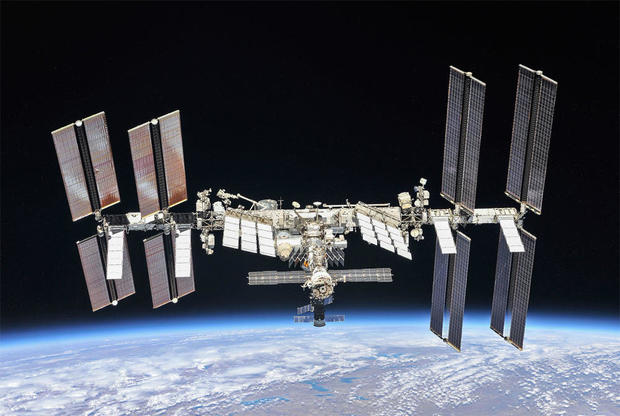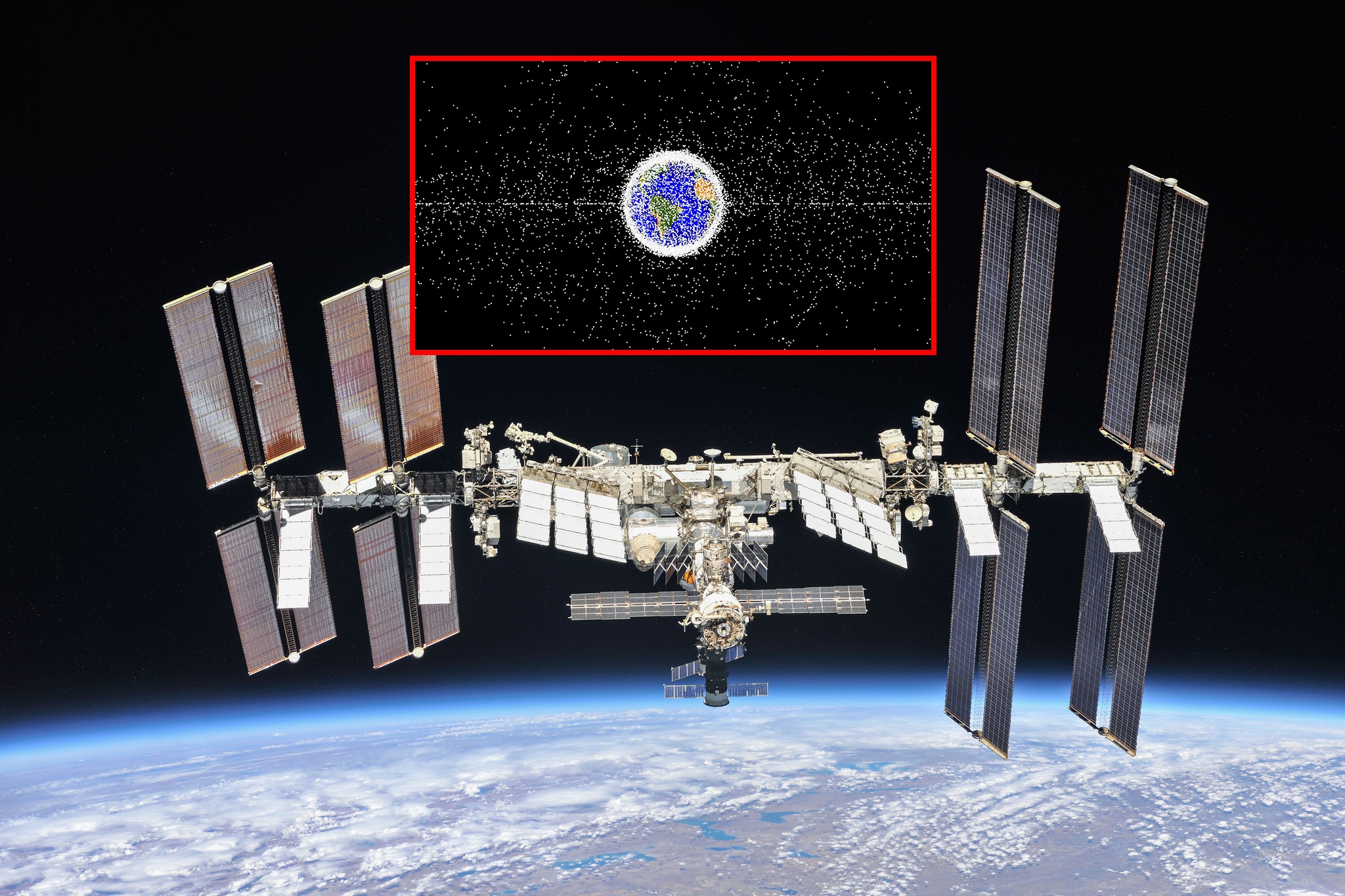A satellite breakup resulting in a “cloud” of debris caused the International Space Station’s seven-member crew to close hatches and seek refuge in their Crew Dragon and Soyuz spacecraft early Monday, according to authorities.
Flight controllers in Houston alerted the crew to the possibility of a near contact, or “conjunction.”
“Station on space-to-ground 2 for an early awakening,” said mission control. “We have learned of a satellite breakdown and need you to begin examining the safe haven protocol.”

The crew was instructed to shut off modules extending radially from the lab’s long axis, including the European Space Agency’s Columbus module, Japan’s Kibo, the United States’ Quest airlock, and NASA’s Tranquility module.
“Because of the nature of the satellite breakup, we anticipate to see this danger every 90 minutes,” radioed mission control. “And, while the people on the ground assess the situation, we anticipate being in the config with the radial hatches closed for up to a day.”
The crew members were cleared to return to the station’s interior and reopen hatches between the US and Russian portions after hiding in their respective spacecraft during the initial close approach phase. The US crew was authorised to open side hatches for limited periods of time between anticipated contacts.
Last Thursday, four more crew members arrived aboard a SpaceX Crew Dragon transport ship, joining Vande Hei and Soyuz MS-19/65S crewmates Anton Shkaplerov and Pyotr Dubrov.
“We greatly appreciate your patience,” Vande Hei was told by mission control. “We recognise that is a weird way to start a mission, and you guys have been soldiers through it all. We sincerely appreciate it.”
“We are looking forward to a calmer day tomorrow,” Vande Hei said.
The origin of the debris is unknown, although Seradata, which manages the commercial SpaceTrak satellite database in the United Kingdom, suggested that the breakup may have included Cosmos 1408, a long-retired Russian electronic spying spacecraft in polar orbit.
The business tweeted that a Russian anti-satellite test may have taken place, however this could not be confirmed immediately.
“ASAT missile strike now suspected,” the company tweeted. “Seradata SpaceTrak database orbital data had Cosmos 1408 in a 487 x 461 km orbit — a bit higher than ISS but not much. The ASAT strike on Cosmos 1408 would cause some debris to be fired below it … threatening ISS with a crossing debris cloud.”
ASAT missile strike now suspected. Seradata SpaceTrak database orbital data had Cosmos 1408 in a 487 x 461 km orbit – a bit higher than ISS but not much. The ASAT strike on Cosmos 1408 would cause some debris to be fired below it…threatening ISS with a crossing debris cloud.
— Seradata (@seradata) November 15, 2021
Air Force Major Annmarie Annicelli stated in an email that U.S. Space Command “is aware of a debris-producing event in space. We are constantly trying to describe the debris field and will continue to ensure that all space-faring nations have the required information to move satellites if they are hit.”
She stated that Space Command is collaborating with the State Department and NASA on the reports, and that an update will be provided “in the near future.”
Radar systems in the United States regularly scan objects in low-Earth orbit and compute probable near encounters between spacecraft, with manned vehicles such as the space station being prioritised.
Shkaplerov, Dubrov, and Vande Hei remained in their Soyuz MS-19/65S spacecraft for Monday’s rendezvous. The freshly arrived Crew Dragon astronauts — Raja Chari, Thomas Marshburn, Kayla Barron, and Matthias Maurer — took refuge in their “Endurance” capsule at the space station’s front end.

